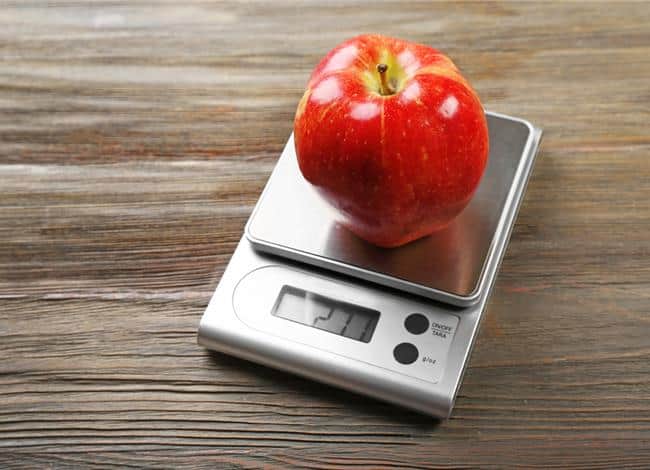
The health risks of carrying extra fat mass are well known. If someone is overweight or obese, significant weight loss can seem daunting. However, weight loss as low as 5-10% of body weight is associated with many benefits including: lowering blood triglyceride levels, lowering blood pressure, lower risk for type 2 diabetes and lower the level of inflammatory markers in the blood.
Health experts recommend weight loss should be seen as a long term approach for health- not a quick fix just to lose weight for an upcoming vacation, celebration, etc.
Successful weight loss takes sustained changes in behaviors you can control like food intake, beverage choices, movement, stress and sleep patterns.
How many pounds you can lose in three weeks can vary greatly depending on genetics, personal medical history and changes you can control with food intake and calorie expenditure.
What is possible versus realistic for you
Some weight loss programs claim it is possible to lose 20 pounds or more in three weeks. While this amount is possible, it takes dramatic changes for these results.
Many people start weight loss with high expectations for dramatic weight loss, but if they are not willing to maintain changes to keep the weight off, it can come right back.
According to a 2005 article (1), about 20% of weight loss attempts become successful for long term success.
Some experts suggest weight loss may be more sustainable if weight loss is approached with a moderate change.
A goal of weight loss between 1-2 pounds per week is often advised. With this plan, weight loss of 3-6 pounds would be the goal in three weeks.
Hint: Use our calorie calculator to calculate how much weight you can lose per week.
It can also depend on what phase of weight loss you are in to determine how much you will lose.
For example, initial weight loss can often be more dramatic in the beginning than in the middle or end of your plan.
Sometimes larger weight loss is seen at the beginning because there is also an increase of water weight being lost.
So, it may be possible to lose up to 20 pounds in three weeks, but it will take some drastic changes to your lifestyle.
In order to keep the weight off, these changes need to become a habit. Losing less weight in three weeks may be more manageable for some because changes can be introduced more moderately.
Changes to make for healthy weight loss
How can you increase weight loss?
The largest ways you can impact weight loss from things you can control are how much energy you take in and how much energy you expend.
It can seem logical that severely restricting your food intake will result in the most dramatic weight loss.
This may be true, but cutting your food intake below 800-1,000 calories per day is not recommended outside medical supervision.
Cutting calories this low will also lower resting metabolic rate which may impact weight loss in the future.
Some people can lose weight focusing on staying under a certain calorie goal. This can be done from calorie estimate equations that can give you a goal calorie range for weight loss. It’s important to remember quality of calories is just as important as quantity.
Focus on eating nutrient dense foods during weight loss to give your body enough nutrients it needs to stay healthy.
Examples of nutrient dense foods include: fruits, vegetables, lean proteins, whole grains, legumes and heart healthy fats.
Balancing energy in and energy out is a main focus for weight loss. Starting an exercise program is a good way to bump up your calorie expenditure.
Keep in mind adding exercise alone will does not usually result in significant weight loss.
A 2014 review article (2) suggests unless the overall amount of exercise is very high, clinical significant weight loss just from exercise may not occur.
Health benefits from exercise happen even without weight loss, but if you want to jump start your weight loss, aim for a higher amount of exercise.
People who have successfully kept weight off exercise on average an hour a day after weight loss just for weight maintenance (3). If you are trying to figure out the right amount of exercise for your weight loss plan in three weeks, speak with your healthcare team.
Tips for successful weight loss
There is a registry of people who have successfully kept weight off for at least 2 years. Long term weight loss is relatively low among dieters, but researchers have found these successful weight losers have some things in common that could help others lose weight and keep it off.
Researchers found the following for people who have had success with weight loss.
- They exercise at least an hour a day on average
- They eat breakfast regularly
- They eat a low calorie diet
- They self-monitor their weight
- They maintain a consistent eating pattern throughout the week and the weekends
Registered Dietitian Dawn Jackson Blatner in a WebMD article (4) also suggests for successful, fast weight loss to fill up on veggies, drink enough water, always eat from a plate and to stay busy to deter eating when you are bored.
Keeping a food journal can also keep you on track and honest with yourself about what you are eating.
Conclusion
How much weight you can lose in three weeks depends on how much changes you make to your daily routines. There are some weight loss plans advocating weight loss up to 20 pounds in three weeks can be possible.
Health experts suggest losing weight gradually, like 1-2 pounds per week, may be better for long term success.
Balancing your energy in through food and drink compared to how much energy you expend is important for successful weight loss.
The quantity of calories is important, but so is the quality. Eating nutrient dense foods is recommended and filling up on veggies and low calorie foods can help you feel full after eating.
Bumping up your exercise can help you burn more energy; the more dramatic weight loss you want the more you may need to add in exercise.
Speak with your healthcare team for what types of exercise and amount of exercise would be best for you.










